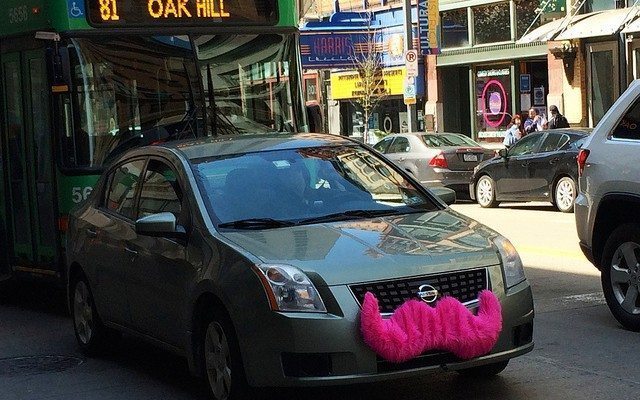 Image courtesy of [Via Tsuji via Flickr]
Image courtesy of [Via Tsuji via Flickr]
News
Rideshare Infighting: Lyft Sues Uber Executive
Uber and Lyft are the two big names in the modern transportation industry. Both services, heavily technologically based, provide dependable transportation and serve as a foil to a traditional taxi. So, naturally, there’s plenty of room for feuding there. Case in point: Lyft is suing former COO Travis VanderZanden, who is now with Uber. Lyft is arguing that VanderZanden breached the confidentiality agreement he signed with Lyft, as well as failed his fiduciary duties.
VanderZanden left Lyft in August after purportedly feuding with company founders John Zimmer and Logan Green. Soon after, he got a job with Uber, Lyft’s most obvious rival.
Lyft is accusing VanderZanden of a few different types of inappropriate conduct after he left the company. It is arguing that he attempted to solicit Lyft employees to leave with him, and it claims that he took a bunch of confidential documents with him when he left. There are traces of certain proprietary documents being copied to VanderZanden’s personal Dropbox–an online account used for large document storage. Lyft claims the confidential documents included:
Historic and future financial information, strategic planning materials like marketing plans and product plans, customer lists and data, international growth documents, and private personnel information.
Even if VanderZanden in no way conveyed this sort of information to his new employers, Lyft argues that he’s still breaking the confidentiality agreement that he signed when he began working with them. The possession of the documents in a personal account alone breaches the document he signed. Uber claims that it doesn’t have any of Lyft’s proprietary information, but who’s to know if that’s true.
The ongoing feud between the two companies is certainly interesting though, as they have very similar roots. Lyft was founded in San Francisco in 2012; Uber was founded in San Francisco just three years before. Having used both services in Washington, D.C. multiple times, there are very few noticeable differences in terms of user experience, except for maybe the fact that Lyft drivers adorn their cars with bright pink mustaches, whereas Uber drivers go for significantly more subtle window stickers.
Despite the obvious similarities, Uber is pretty much trouncing Lyft in the market. Fortune discovered that in the last year, riders spent $26.4 million on Uber rides, in comparison to only $2.2 million reported by Lyft. Part of that could very well be because Lyft is a younger company, and while they’re growing quickly they’re certainly still behind Uber in the grand scheme of things. Uber is a global company, whereas Lyft is still working on expanding.
Given that the two companies really are fighting for the same market–smartphone wielding people who don’t want to have to bother with hailing a cab or fumbling with cash to pay for said cab–Lyft and Uber have every reason to compete. Like Apple and Samsung, on a much smaller scale, I think we can expect to see lawsuits, court cases, and allegations thrown around between the two companies for a while to come.








Comments